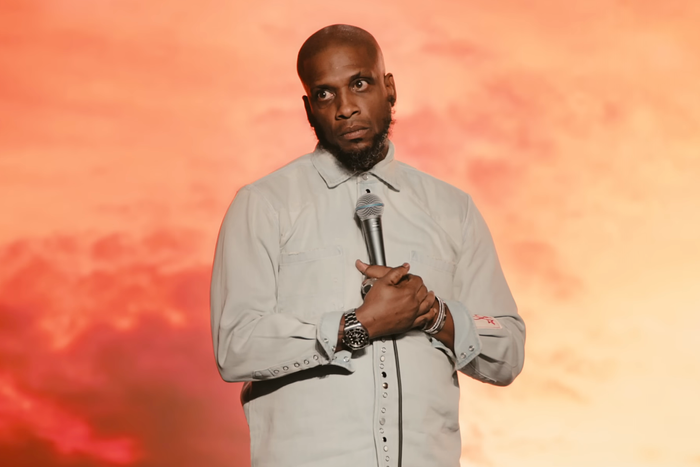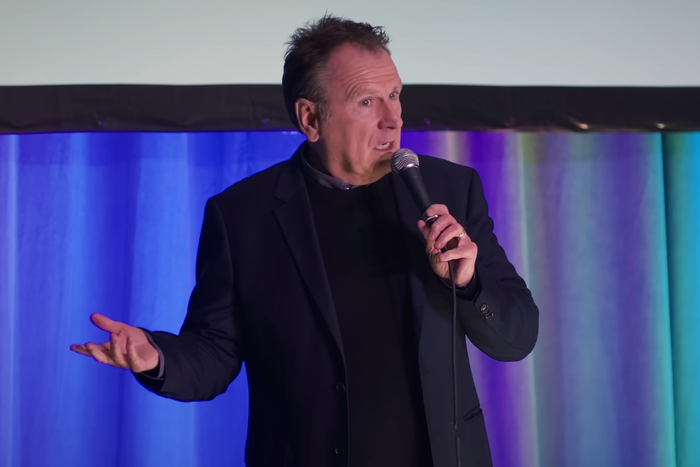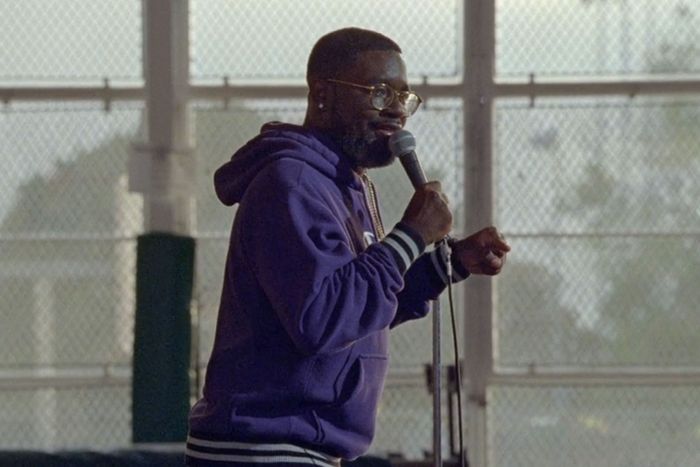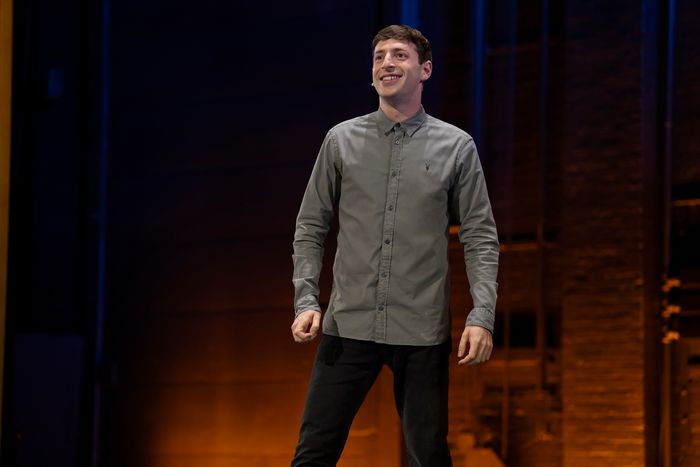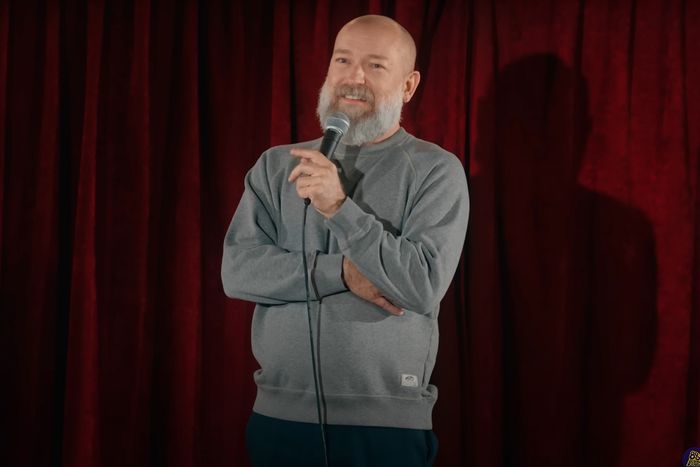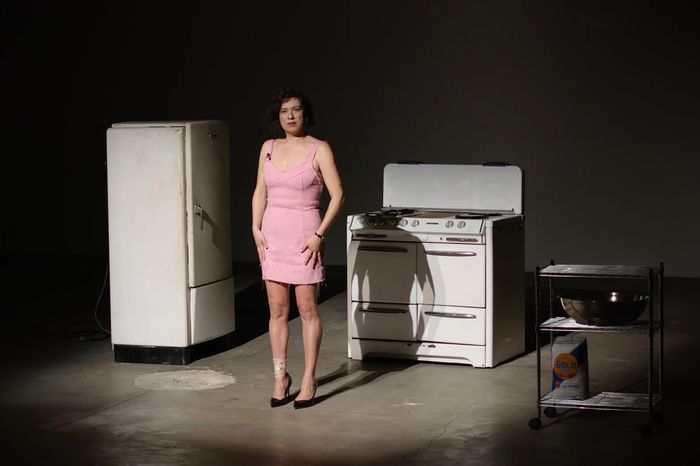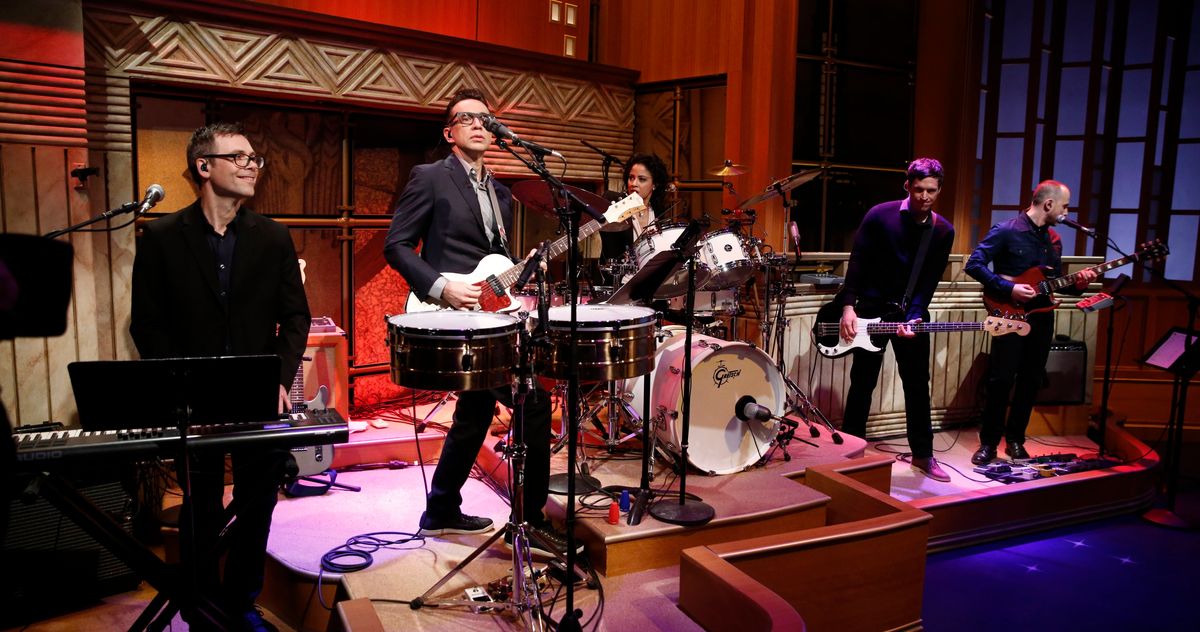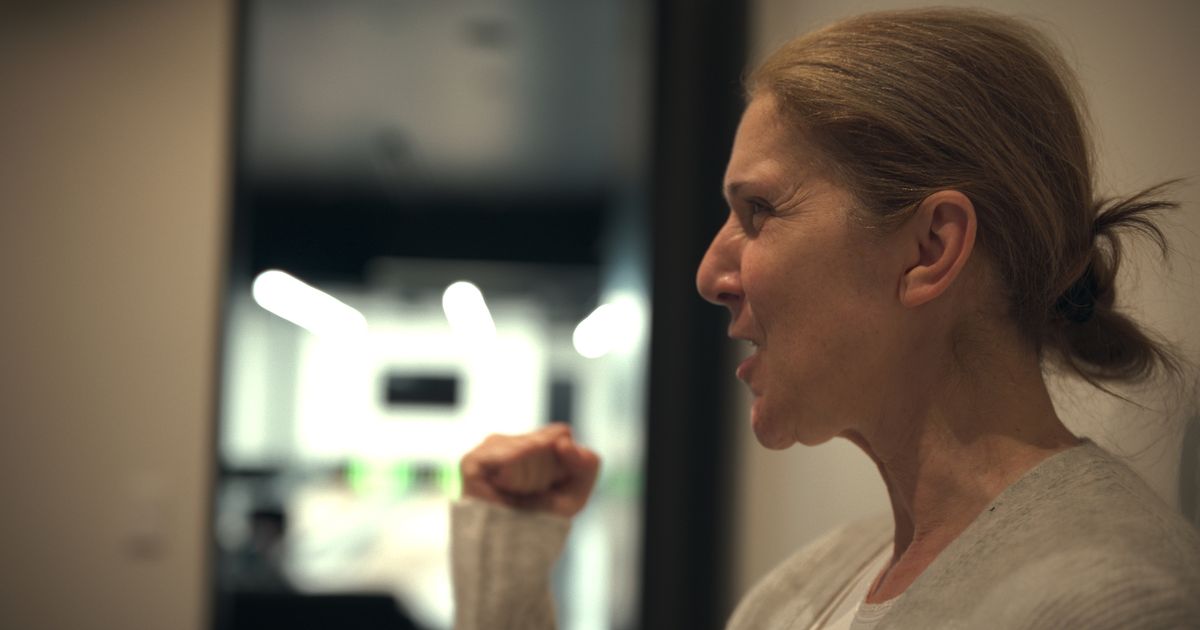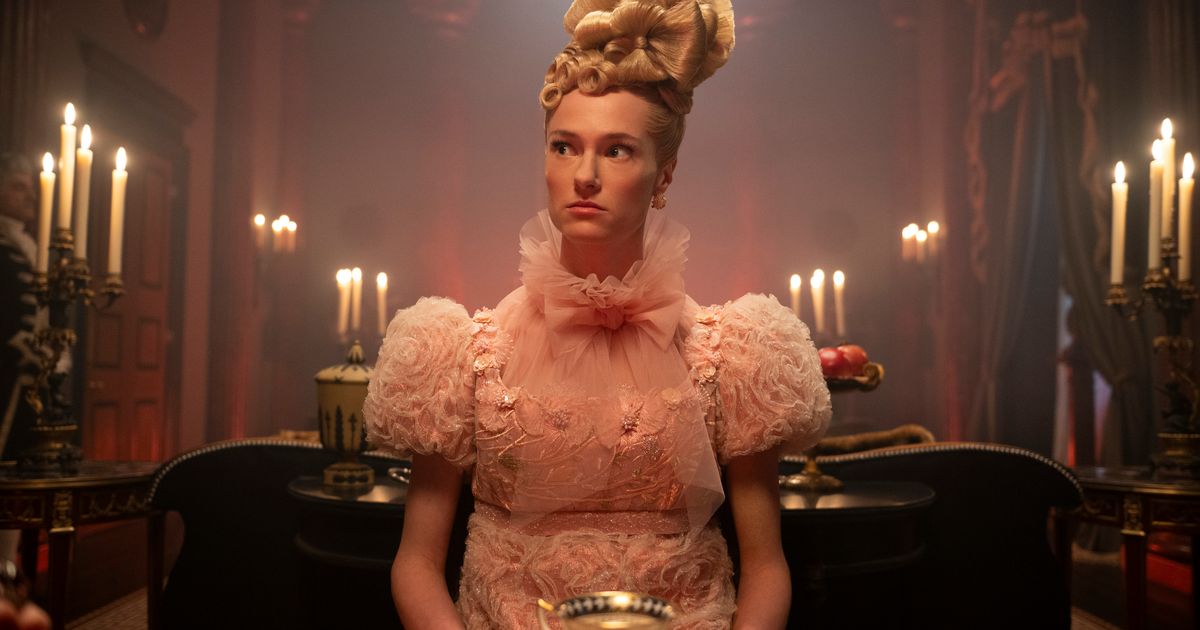Photo: Vulture; Photos: Colin Quinn via YouTube, Jennifer Clasen/HBO, Ali Siddiq via YouTube
Upward of 150 stand-up specials were released in 2023. That’s a lot — much more than a generation ago, when it was hardly guaranteed that a comedian would ever film one if they weren’t one of the top names in the business. Now, if a comedian can’t get one of the cable or streaming networks to buy their special, they can self-produce and release it alongside one of the hundreds of other specials currently on YouTube, which only makes the glut of options for viewers daunting. As such, every month this column will suggest a few specials worth watching: three to five released in the given month and one older special inspired by one or more of the new releases. Think of this not as a “Best Of” list but a collection of specials that are either funny, ambitious, compelling, or peculiar — not necessarily all four at the same time, but each has something that makes it extraordinary. We can’t change the enormous amount of options out there, but we can elevate the ones that are noteworthy watches for any stand-up fan.
Photo: Ali Siddiq via YouTube
Ali Siddiq is in the middle of the most ambitious project in the history of stand-up: a four-part series about how he was raised by a drug dealer, started selling drugs himself, got arrested, and went to prison. Presented with unflinching honesty, it covers his life from the ages of 10 to 25. Part 1 is a sort of prologue to a trilogy, making Part 3 the Empire Strikes Back — the narrative low point for our main character. After being arrested at the end of Part 2, Siddiq is in jail deciding whether to go to trial or take a plea bargain, all while having to break the truth of his criminal life to his mother. He is the rare comedian who shows more than tells in his storytelling, and here he shows how his spirits slowly break and his humanity is stripped away. (In a lovely bit of direction, Siddiq’s performance of this arc is backdropped by a screen that shifts from a sunny day to the sun setting to night sky over the course of 70 minutes.)
While Part 3 is funny throughout — Siddiq is gifted at instantly inhabiting the wild characters in his stories — it’s also hard to watch at times. Siddiq is at his most evocative when comparing the dehumanizing prison-intake process, where his naked body is overexamined and he’s chained to other future inmates, to slavery. Like the other installments of Domino Effect, you can watch Part 3 on its own, but it’s more comedically and emotionally resonant if you watch 1 and 2 first.
Photo: Jennifer Clasen/HBO
Six days after Nikki Glaser’s performance at the live Netflix roast of Tom Brady, she released her fourth hourlong special, which displays the impeccable joke craft that earned her so much praise earlier in the week. While much of the special is straight jokes (as opposed to longer stories), Glaser excels at mixing up timing and structure to keep her set feeling fresh. She has a knack for incorporating vivid imagery, like when she describes the benefit of her boobs falling with age: “My boyfriend just puts his penis next to my rib, and I flop over my tit like a weighted blanket, and then I just move from side to side like … one of those cactuses with sunglasses.” The special opens with nearly 20 minutes of thoughtful and honest material on the topic of not having kids, a choice she compares to her decision not to try heroin. And then there is the closer, an act-out about gangbangs that’s surprisingly touching and poignant. Sex jokes — especially when told by female comedians — have historically been treated with condescension, but that has not deterred Glaser, who keeps pushing the genre further and further and has become its modern master.
Photo: Colin Quinn via YouTube
There are few things comedians complain about more than corporate gigs. Retreats, conferences, conventions, galas — they’re all filled with distracted crowds who are either afraid to laugh around their colleagues or too drunk to pay attention. That makes one such gig a perfect setting for Colin Quinn, comedy’s biggest proponent of bombing. By filming his special at the Psychotherapy Networker Symposium and including interviews with therapists who diagnose Quinn based on what they see in his set (one person says Quinn is a sociopath), the comedian creates a uniquely robust watching experience: You’re observing his material, but you’re also observing how the therapists receive it, which, in turn, makes you wonder what they must think about him. Is he a truth teller of society’s ills or a madman? It’s a refreshing paradox, when so many specials (like Katt Williams’s Woke Foke, also out this month) are weighed down by myopia and self-importance. The setting also fits nicely with Quinn’s overall thesis that social media is a “psych ward.” While sometimes the special dips into tired kids-these-dayisms, some jokes serve as a fantastic mix of material and setting. “Your identity is who the government says you are,” Quinn argues during one rant. “Your personality is who the people that know you think you are. Your reputation is who the people that don’t know you think you are. Your social-media profile is who you think you are. And your browser history is who you are.” Then he pauses and addresses the therapists directly: “I think your job would be a lot easier if you just call people in and say, ‘Let me just see your browser history.’”
Photo: Sarah Shatz/MAX
While one-person shows have become trendy over the past few years in the States, Edelman dedicated himself to longform stand-up since moving to London in 2012 and winning Best Newcomer at the Edinburgh Fringe in 2014. As a result, and though Edelman might come off twitchy and needy onstage, Just for Us is a special of uncommon confidence. Filmed during its 2023 run on Broadway, Just for Us was developed, on and off, for six years (it was nominated for the Main Prize at Edinburgh in 2018) and is built upon Edelman’s story of the time he went to a white-supremacist meeting in Queens and tried to hide that he was Jewish. But instead of a simple, heavy narrative about the plight of antisemitism, Edelman’s show grapples with knotty ideas like assimilation, whiteness, and the usefulness and limits of empathy, all while intentionally eschewing the trap of trying to offer simple answers to complex questions. More than anywhere, Just for Us shines in its pacing. Edelman allows stories to breathe enough for the audience to feel invested, but he never pushes them to the point of false pathos. If more comedians are going to try their hand at solo shows, Just for Us shows them how it’s done.
Photo: 800 Pound Gorilla Media
“Jesus!” is how a respected storytelling comedian responded when I told them that Kinane’s sixth special ends with a 47-minute closer. Yes, the joke is virtuosic and moving in its scale, but it’s also really, really funny. There is just so much funniness packed in there, with Kinane pulling off a laugh density of a one-liner comedian. For example, there is a section about Midwesterners’ reluctance to go to therapy Kinane punctuates with, “Well, if God didn’t want me to have anxiety, why did he give me all these cuticles?” It’s already a solid joke, but Kinane piles on three more after that: “Having a rough one, Kyle, then you know what to do — that’s two handfuls of panic snacks”; “You just go lock yourself in the bathroom at lunchtime and go full Blues Travelers on them shits”; “Then you hide your bloody hamburger mittens in your pockets for the rest of the day so your coworkers don’t know how to process your feelings correctly.” Through this specific viscerality, the audience gets a more embodied and memorable impression of Kinane’s perspective than they would with an easy punch line. This special is loaded with jokes on jokes like this.
Photo: Nathan Macintosh
At the start of the special, Macintosh thanks the audience for being there and adds, “There’s a good chance you might not have made it — you know, because it’s so easy to just sit home … and scroll.” And away he goes! What follows is a focused assault on a single topic: tech companies and the tech nerds, he argues, who run the world. While there are some well-covered areas in the hour, Macintosh more often than not finds unique angles (like describing Mark Zuckerberg showing up to a party with a tennis ball because he doesn’t know what normal people bring). But, more than anything, Macintosh’s strength is his frenzied performance and specifically his constantly cracking, sky-is-falling voice. Pacing and tonal range? That’s for the one-person shows. Macintosh is a tea kettle always on the heat. There is an irony to this special being on YouTube, the type of place Macintosh is complaining about, but it only proves how completely these companies have taken over our culture.
Photo: Christina Catherine Martinez
Throughout her debut special, Martinez is shot alone in an empty gallery space, surrounded by a fridge, oven, and baking materials, wearing an unfinished pink dress pulled tight in the back with large steel clamps. It is not the first special shot without an audience, but with How to Bake a Cake it underlines the loneliness of the material and the emptiness of modern life Martinez is commenting on. When she mentions her day job at a start-up, an ominous off-camera voice asks her what she did there. “I honestly have no idea,” she says. “As far as I can tell, my job was, every day, to go into an office, and then I would, like, just touch base … all day. That’s what they don’t tell you in college: You can work in any creative industry if you know how to touch base. If you can check in and circle back as well, then like … [she makes a fart noise with her mouth] you have ‘upper management’ written all over you.” Then it cuts to a shot of Martinez tiny in frame, shot from a far distance and surrounded by a massive black nothingness. In this existentialist void, Martinez highlights the absurdity of trying to perform one’s “real” self in a stand-up special and, in turn, to perform one’s real self in one’s actual life when we are constantly being surveilled and self-documented. It’s a strange, experimental special, so you might not like it, but watch it anyway.
Photo: Natasha Vaynblat
Vaynblat’s We’re All Dads Here feels like a little oasis/time machine, because unlike many recent specials — the honestly emotional, politically strident, spitefully offensive, ironically detached, and post-ironically performed — she’s just really, really silly. She tells a joke about how her old roommate used to know when she was going to the bathroom because she’d hear Vaynblat say “oh boy” to herself, which gets only sillier when Vaynblat explains that she spilled water on her laptop after writing that joke, so that when the computer-repair person brought it back to life, all they saw on the screen was the phrase “oh boy when I poop” bolded and underlined. What makes the kookiness work is Vaynblat is a deliberate, self-aware joke writer and precise performer able to gracefully slip in and out of characters and voices. And while most YouTube specials are shot without much direction beyond just documenting the live show, We’re All Dads Here has some nice flourishes. At one point, Vaynblat talks about how even though her family immigrated from Russia, people don’t think she looks Russian, but she can make herself look Russian in an instant. She instructs the live audience to close their eyes so she can transform, and the camera cuts to shoot her from behind so the audience at home can similarly be surprised by her transformation. The camera cuts back as she tells the audience to “open them,” and wouldn’t you know? She does, in fact, look Russian.







